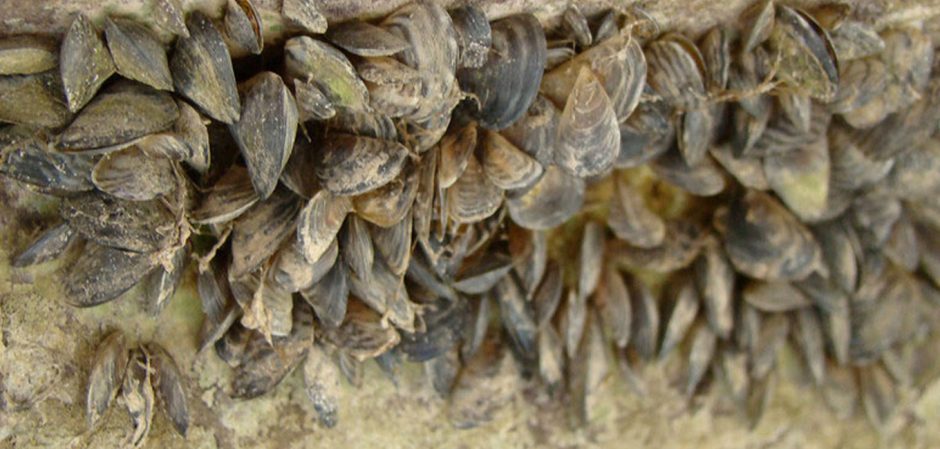Tiny mussels could cause Great Lakes ecosystem to crash

Invasive zebra and quagga mussels in Lake Huron and Lake Michigan have ruined any welcome they may have had in the lake ecosystem. Since the mussels were first discovered in the lakes in the 1990s, they have been pulling the ecosystem from its foundation.
The mussels feed on plankton in the lakes. They then deposit ingested phosphorous from the plankton as waste in the lake sediment, so the nutrient never reaches the lakes’ open waters. Since the mussels invaded, the proportion of phosphorous retained near the shore have increased from 46 to 70 percent, according to a recent NOAA study. Phosphorous is needed in the lakes’ open waters to feed photosynthetic organisms that then feed larger organisms in the ecosystem. EPA records show that algal production in Lakes Huron and Michigan was 80 percent lower in 2008 than in the late 1980s. Without this crucial algae supply, key organisms such as Diporeia, a macroinvertebrate that nearly ever Great Lakes fish eats, are dying off.
Dying fish populations are not only a concern to biologists. Great Lakes fisheries are collectively worth billions of dollars and provide a livelihood for many living in the area. Though it seems these tiny mussels have complete control over biological changes in the lakes, scientists such as Donald Scavia are pleading for lake management agencies to step in before more damage is done.
“New strategies for managing the lakes are urgently needed. Ecological changes that formerly occurred over decades are now happening in just a few years, so we need to adapt our management policies to this new reality,” Scavia said.
Read more at Science Daily and Chemical and Engineering News.





0 comments